Success Stories
Real-World Results
Don't just take our word for it. Read about the successful experiences of a few of our customers.
How consistent is your pouring?
Don't just take our word for it. Read about the successful experiences of a few of our customers.
How consistent is your pouring?
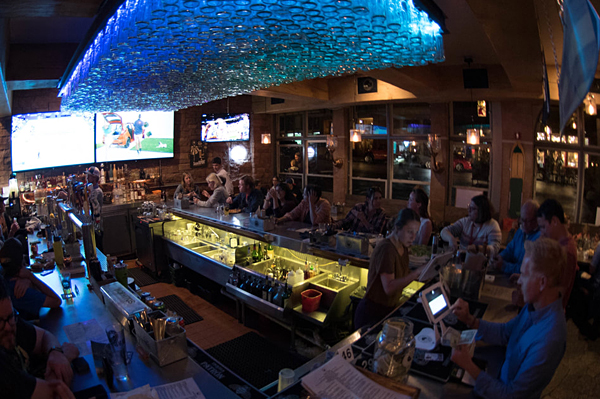
High Pie Pizzeria & Tap Room, also known as “Telluride's Best Pizza Joint”, serves a steady stream of locals and visitors with hand-crafted pizzas, craft brews, and mixed drinks.
Like any fast-growing hospitality business, High Pie struggled to keep up with the demands of their operations. They turned to Capton to help them get control.
Using Capton, they now have reporting on bar performance metrics at both the shift and bartender levels, which allows management to accurately calculate bonuses and quickly spot individuals in need of additional training. They use Capton to set and enforce shift and complimentary drinks targets, with staff collaboration, which has improved relations with staff and patrons.
In addition to helping reduce liquor costs, the insights and control provided by Capton immediately increased sales revenue, generating a return on investment (ROI) in only six weeks.
“Inventory spot checking of shifts or days was extremely burdensome and a recurring task. Installing Capton was the simplest method to minimize shrinkage through readily available bartender and shift level reporting. We found that liquor costs dropped immediately with combined increase in sales revenue and pour accuracy. The system paid for itself in six weeks.”
Russell Shumway, Owner
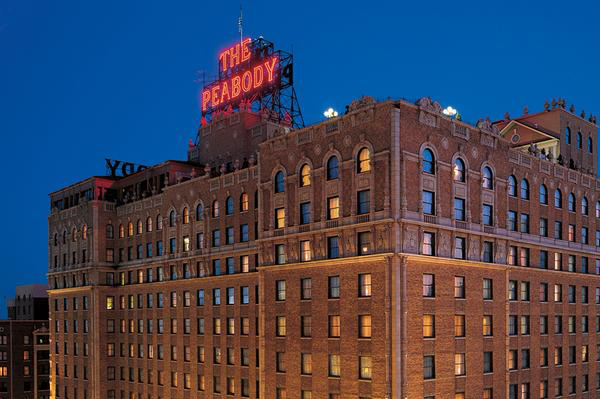
The Peabody Memphis is a magnificent 4-Diamond hotel situated in the heart of “Blues City”. The hotel is also one of Memphis' most popular attractions due to the famed Peabody Ducks, who march to and from the Grand Lobby twice daily in a time-honored tradition dating back to the 1930s.
Legendary, charming, elegant and grand are adjectives that perfectly describe this luxury hotel that prides itself in providing service and amenities exceeding guest expectations. “A primary focus for us is always about the guest experience, ” said Food and Beverage Cost Controller, Alvin H. Walls. “We have big operations, a huge service bar and a large number of exotic cocktails. We know that the guest experience is eroded when bartenders don’t prepare drinks consistently."
The Capton system installed at The Peabody utilizes RFID-enabled liquor pour spouts to provide a clear picture of exactly how each drink is prepared, how the guest is served and how the transaction is handled in the point-of-sale (POS) system. Anytime there is a variance from what is expected, the system can spotlight the event to management for follow up action.
"The Capton system identifies over pouring, missing drinks and unaccounted for pours, giving us a visibility into our bar operations we never had before,” remarked Walls.
“We had a number of key success criteria, ” according to The Peabody's Controller, Bob Brown. “We wanted the system to help us achieve consistency in drink preparation, which translates into reduced liquor costs. We required that the system not interfere with any aspect of our guest service operation and not require management to spend hours running it. We wanted revenue assurance, which meant every drink poured would be matched up with drinks sold in our HSI POS system. Based on the proof of concept results, we purchased Capton for the lobby bar (famous for the ducks) and made the decision to use it for banquet operations, which include huge seasonal special events with cash bars.”
“Since we began using the system in May, we have witnessed a significant reduction in liquor inventory costs and a significant increase in revenues associated with free pour drink control. We have nothing but good things to say about Capton’s proof of concept approach and process, ” stated General Manager, Douglas Browne. “They have great, knowledgeable people on their team who understand our business and worked with us through the entire project and beyond to show us a very sustainable ROI. It is a real partnership.”
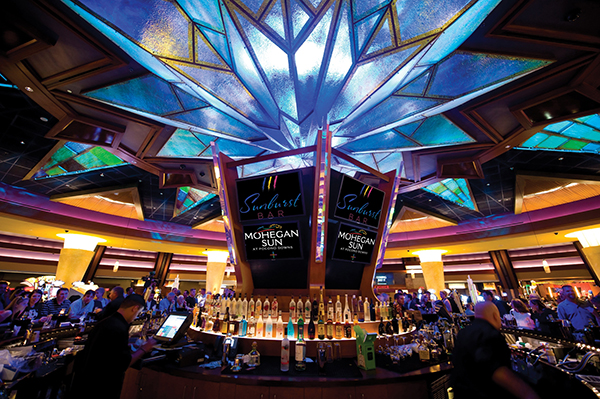
Mohegan Sun is one of the largest casinos in the world with over 300,000 square feet of gaming space and 1,200 hotel rooms. Three years ago it purchased Capton beverage monitoring systems to cover 12 outlets on the property.
Initially Mohegan assigned just one manager to be responsible for the Capton system at all bars on the property. It was an overwhelming task. Bartenders were removing spouts off of the bottles and the project manager found bartenders to be defensive about the pour reports. There was a general lack of attention to bartender performance. Upper management felt they weren't getting the return on their investment that they should.
The head of food and beverage tasked Capton and the management team with taking control of the system and improving the liquor costs of the property. The team took two major actions. First, Capton reports were used as a professional development tool for the bartenders. And maintaining spouts on bottles was decentralized and tasked to line staff with management being the double check.
The beverage department created the high level goals with the bartenders of increasing drink consistency and reducing over pouring. The bar managers started generating Capton reports to have regular briefing sessions with the bar staff to let them know how they were doing within their defined goals. Culturally everyone started to focus on not over pouring drinks. Liquor costs went down.
Instead of one manager being responsible for the spouts at all the bars, all bar supervisors were charged with having spouts be maintained on the bottles. If the spouts don't stay on the bottles then there is no data for the reports and the professional development opportunities suffer. The bar supervisors in turn made it the responsibility of the bar backs to look for spouts off bottles and place them back on the bottles. Bar backs place spouts on bottles at the beginning of their shifts and the bar supervisors quickly double check spouts are on bottles as part of their routine when walking the floors. Finally the beverage managers periodically check in on the overall operation as they check on operations.
Mohegan Sun has consistently reduced its overall liquor costs 1% to 2% every month from its baseline. The Capton system is now a natural part of the bar environments and continues to be a tool to track and discuss bartender performance.
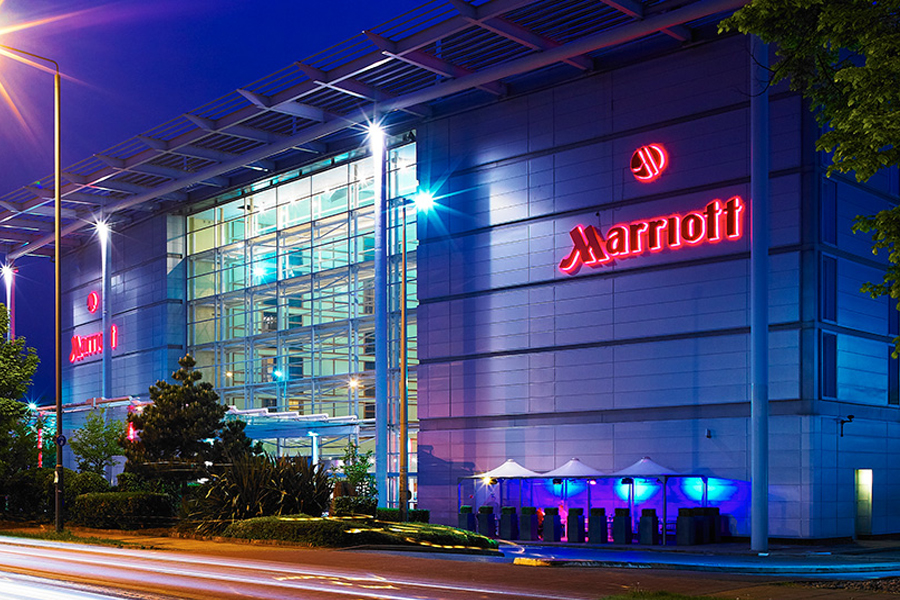
Sunstone Hotel Investors is one of the most respected REITS in the hospitality world. Its 27-property portfolio flies the flags of many prestigious brands including Marriott, Hyatt, Fairmont and Hilton.
Sunstone has consistently produced impressive net operating income performance improvement, in partnership with their operators, by funding profit-impacting capital projects. Despite severe capital funding restrictions across the industry, Sunstone moved forward with Capton pilot projects in early 2009.
After experiencing positive results with pilot installations in its Renaissance Washington DC and Marriott Boston Long Wharf hotels, Sunstone will be moving forward with Capton projects in a number of other Sunstone properties.
"Our first project came as the result of a contract signed between Capton and Marriott in the summer of 2008. Marriott was looking for owners who were interested in funding a Capton technology purchase and we thought Capton's product seemed like a winner," said Marc Hoffman, VP Asset Management for Sunstone.
"We installed the Renaissance Washington DC in December 2008, and within 90 days we started seeing a liquor cost reduction that was jaw-dropping. The Renaissance Washington DC has always had one of our best performing food and beverage teams, but we felt putting the Capton system into the hands of this team might solve a liquor shrinkage problem which we know exists in every hotel we own."
To combat the problem, Sunstone had focused on inventory-based beverage control solutions in its properties – yet shrinkage problems remained.
"We could see the problem particularly in our larger properties, but not the individual acts that were causing the problem," said Hoffman. "Capton spotlights every single individual act that occurs when drinks are prepared incorrectly or not correctly rung up as revenue. The day the system goes in, that kind of behavior stops and liquor costs plummet."
After the initial success at the Renaissance Washington DC, Sunstone then installed the system at the Marriott Boston Long Wharf. "It was a smaller operation, but we got the same result. The system paid for itself in short order with liquor cost savings, positioning us to increase net operating income, and therefore, immediately increase our portfolio value," commented Hoffman.
Ownership groups prefer the Capton technology because it directly impacts net operating income by reducing costs without increasing operating expenses. Sunstone in particular values its role of partnering with hotel operating teams to provide tools which can immediately help improve profitability. Especially during tough economic times, proven solutions that can reduce operating costs are not optional. Sunstone plans on implementing Capton in another half dozen locations immediately, and looks forward to continuing the Capton rollout throughout its portfolio.
“The great thing about Capton is that when we check back in with our property teams, the ROI result is clear," concluded Hoffman, "and the teams always comment about how much they appreciate the focus and the commitment of Capton to work with them over time to produce and maintain the ROI results. These guys are truly bar operations experts who can make a difference across the board in any beverage operation.”
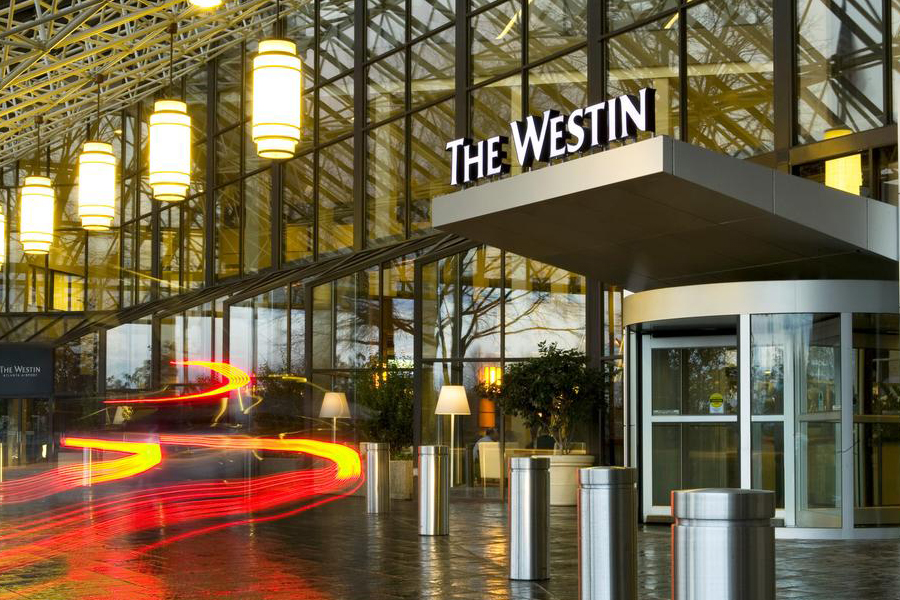
The Westin Atlanta Airport offers a contemporary yet soothing atmosphere for business and leisure travelers at this full-service, AAA Four Diamond Award property. And Martini’s Lounge, in the 10-story lobby atrium, with beautiful marble, glass and foliage is the perfect spot for guests to revive their spirits.
The Westin Atlanta Airport’s goal was to use technology as a vehicle to improve operating efficiency at Martini’s Lounge, lower liquor costs and enhance the guest experience. Most importantly, they needed a system they could rely on — one with a good track record of performance and support. They chose Capton.
The goal in using the Capton system was to get greater control over liquor use, preventing shrinkage without interfering with normal bar operations or negatively affecting the customer experience. Designed to allow bartenders to pour liquor without adjusting normal bar operations, Beverage Tracker is comprised of a set of wireless pour spouts, linked to a powerful management and reporting software that give managers a real-time view of liquor usage. The system is simple to deploy, and the results are impressive: average liquor cost savings of 20%.
“The Capton system works incredibly well for us. We installed it in December 2010 and saw our liquor cost drop 3.5 percentage points in 2011. Like any other tool, it must be used to gain full benefit. We review data with our bartenders 5-10 minutes twice a week. It’s pretty easy,” remarked Jon Walker, Director of Food & Beverage, Westin Atlanta Airport.
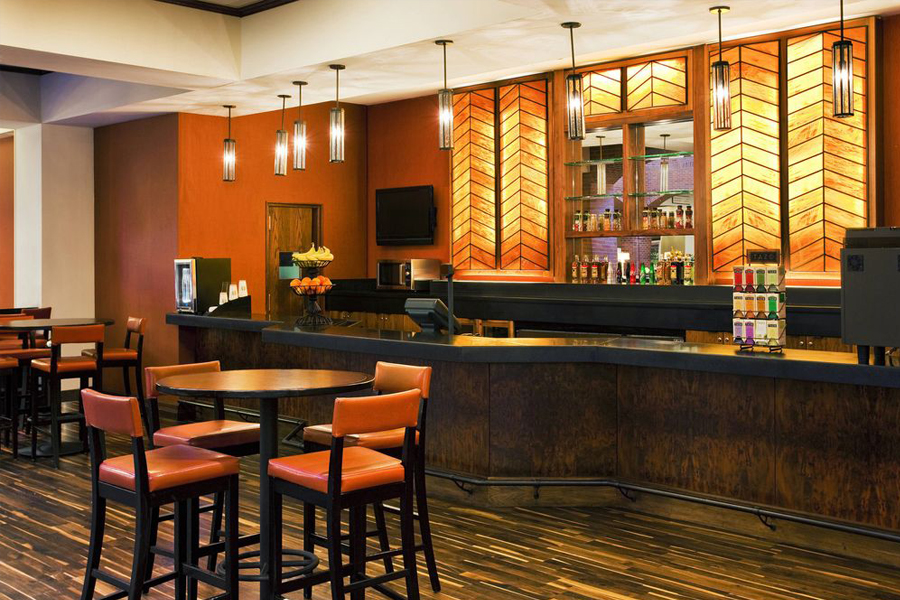
“All you have to do is ask” is a signature statement of the Sheraton Society Hill Hotel in historic Philadelphia. They take great pride in their uncompromising staff and upholding the high standards of the Sheraton name, starting with a warm welcome as you step back in time to colonial Philadelphia.
Like any operator in these highly competitive times, popular historic location and exemplary service notwithstanding, the challenge is to find new ways to cut costs and efficiently manage revenues. The Sheraton Society Hill invited Capton to show them how its Beverage Tracker solution could reduce liquor costs, boost revenue and maintain a sustainable ROI.
The Capton solution was implemented in one of the Sheraton Society Hill’s popular, sports-themed bar and restaurant concepts. Sheraton management was razor focused on utilizing the Capton system to its fullest potential and were rewarded accordingly with an impressive percentage point liquor cost drop after six months.
Larry Mullan, Director of Food and Beverage for the Sheraton Society Hill had this to say, “The ROI is clearly there. This is a system that will definitely pay for itself. I think it is fantastic. I've been in food and beverage for a long time and I have never seen anything like this without it being hidden. I believe that the solution would also benefit our banquets business because the bartenders would know we are watching.”
The Capton system utilizes RFID-enabled liquor pour spouts to provide a better-than-secret-shopper picture of exactly how each drink is prepared, how the guest is served and how the transaction is handled in the point-of-sale (POS) system. Anytime there is a variance from what is expected, the system highlights the event for management follow up action. Before a system goes live, Capton provides an instructional program for managers and bartenders to understand how the system works, and to test their own skills. After installation Capton continues to work with bar managers remotely, examining the results of selected sales and pours, hunting for inaccurate pours, and maintaining scorecards for each bartender.
The Sheraton Society Hill is an almost a textbook case in terms of a smaller operator focused on cost savings, who understood the ROI opportunity presented, and used the Capton tools to their ultimate advantage for some pretty tremendous results.
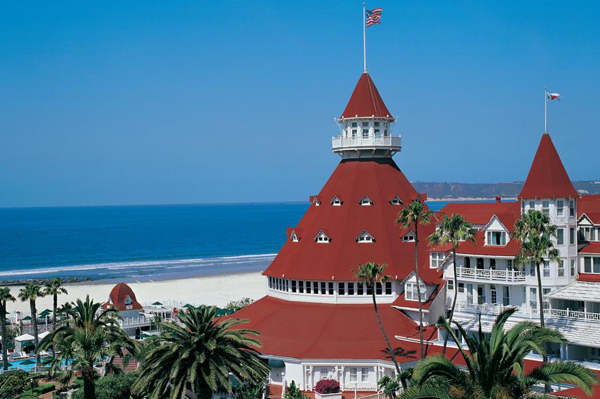
Located in San Diego, California, the Hotel Del Coronado has long been heralded as one of America’s most beautiful beach resorts. More affectionately known as “The Del”, it has been called “one of the top ten resorts in the world” by USA Today.
Known as the best bar in San Diego, Hotel del's Babcock & Story was designed to take advantage of the spectacular seaside setting and features the original 46-foot handcrafted mahogany bar, which was brought by ship from Philadelphia around Cape Horn in 1888. It’s a popular, high volume, high-end operation.
“Our high volume bar, Babcock & Story, was running a respectable 18.8% beverage cost. We had implemented an inventory solution that was highlighting a significant liquor shrinkage problem. The challenge, however, was that even with weekly inventories conducted by the solution vendor, we could not go to bartenders with sufficiently detailed data to change behavior," observed Steve Schackne, Food and Beverage Director for Hotel Del Coronado.
Hotel del Coronado is part of the Strategic Hotels & Resorts portfolio, an industry-leading owner and asset manager of high-end hotels and resorts. Schacnke followed the recommendation of another Strategic property that had been using Capton and getting impressive results.
"Capton generated data is behavior-changing in character. We know exactly who is over pouring what drinks, and when. We know every time staff gives away a drink, or if they fail to apply an up charge. After five months our beverage cost is down 3.6 points. That’s a three month payback on the system in that one bar.”
One of the key objectives for Capton in this project was not only to produce savings, but also to prove the system did not negatively impact customer service or guest experience.
“The problem with a lot of liquor control systems is that they look ‘clunky’ to customers, impose operational practice change, and require a lot of management babysitting to keep them running. The Capton system had none of these issues – and it produced the savings result,” added Schackne.
The Capton project involved an installation of Capton’s patented RFID-based liquor monitoring spouts at the Babcock & Story Bar operation, Capton’s software on a manager’s desktop, and a POS Integration application linked to the property’s Micros POS solution.
“The thing we like about this solution,” said David Hogin, VP Asset Management for Strategic Hotels, “is that it does not become a management burden. It’s a technology investment we can make into a property with a fast ROI that does not require major operational changes or management priority shifts. And Capton’s ongoing business services approach puts them in position to be an independent advisor to the local team on ways to reduce costs and increase revenues in their bar operation.”